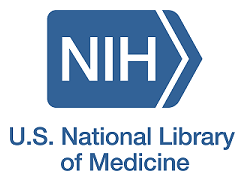

To Your Health: NLM update Transcript
Muscle dysmorphia and men's health: 02/06/2017

Greetings from the National Library of Medicine and MedlinePlus.gov
Regards to all our listeners!
I'm Rob Logan, Ph.D., senior staff, U.S. National Library of Medicine (NLM).
Here is what's new this week in To Your Health - a consumer health oriented podcast from NLM - that helps you use MedlinePlus to follow up on weekly topics.
An obsession among some younger American men with a muscular appearance is an unheralded medical disorder also associated with medication abuse and significant health risks, finds an insightful viewpoint recently published in the Journal of the American Medical Association.
The viewpoint's three authors explain 'muscle dysmorphia' is now an official psychiatric diagnosis that describes obsessive muscularity efforts among some young American men.
The viewpoint's authors estimate that hundreds of thousands of U.S. men have a muscularity obsession. The authors' estimates are grounded in recent research that finds about 2.2 percent of U.S. men have a body dysmorphic disorder and about 9 to 25 percent of these young men have muscle dysmorphia.
The authors write (and we quote): 'Men with muscle dysmorphia describe dissatisfaction with their body size and shape and are preoccupied with the idea that their body is insufficiently muscular..' (end of quote).
Moreover, the authors explain excessive attempts to bulk up may have serious health side effects. The authors write (and we quote): 'these men show elevated rates of mood and anxiety disorders, obsessive and compulsive behaviors, substance abuse, and impairment of social and occupational functioning' (end of quote).
More specifically, the authors, who are from Harvard Medical School and the National Institute on Drug Abuse, explain muscularity efforts are often associated with taking anabolic-androgenic steroids (or AAS).
The authors write (and we quote): 'Emerging evidence has implicated several adverse health effects of AAS use, including increased risk of premature death, cardiovascular disorders, psychiatric effects....' (end of quote). The authors explain prolonged AAS use also is associated with an array of other serious health impacts including an elevated risk of stroke and brain disorders.
The authors add the abuse of AAS (and we quote) ' has received little coverage in medical textbooks and until recently limited attention in the overall medical literature' (end of quote).
By raising awareness, the authors additionally hope to generate new research on the long term health consequences of AAS use and the overall impact of muscularity obsession among men.
Meanwhile, the Children's Hospital of Boston provides a website about better emotional health for younger men within the 'start here' section of MedlinePlus.gov's teen mental health health topic page.
The Nemours Foundation also provides a guide to young men's body image in the 'specifics' section of MedlinePlus.gov's teen mental health health topic page.
MedlinePlus.gov's teen mental health health topic page also provides links to the latest pertinent journal research articles, which are available in the 'journal articles' section. Links to relevant clinical trials that may be occurring in your area are available within the 'clinical trials' section. You can sign up to receive updates about teen mental health as they become available on MedlinePlus.gov.
To find MedlinePlus.gov's teen mental health health topic page, please type 'teen mental health' in the search box on MedlinePlus.gov's home page, then, click on 'teen mental health (National Library of Medicine).' MedlinePlus.gov also has health topic pages devoted to: exercise and physical fitness; sports safety, and mental disorders.
Overall, the viewpoint provides a perspective on New Years resolutions to exercise more and integrate physical fitness into one's life. While some research findings suggest the health benefits of participation in sports activities, some forms of exercise may be harmful — especially if advanced by a body image obsession.
Before I go, this reminder... MedlinePlus.gov is authoritative. It's free. We do not accept advertising .... and it is written to help you.
To find MedlinePlus.gov, just type 'MedlinePlus.gov' in any web browser, such as Firefox, Safari, Chrome, or Explorer, on any platform.
We encourage you to use MedlinePlus and please recommend it to your friends. MedlinePlus is available in English and Spanish. Some medical information is available in 48 other languages.
A written transcript of recent podcasts is available by typing 'To your health' in the search box on MedlinePlus.gov's home page.
The National Library of Medicine is one of 27 institutes and centers within the National Institutes of Health. The National Institutes of Health is part of the U.S. Department of Health and Human Services.
A disclaimer — the information presented in this program should not replace the medical advice of your physician. You should not use this information to diagnose or treat any disease without first consulting with your physician or other health care provider.
It was nice to be with you and happy new year! Please join us here next week and here's to your health!






















.png)











No hay comentarios:
Publicar un comentario